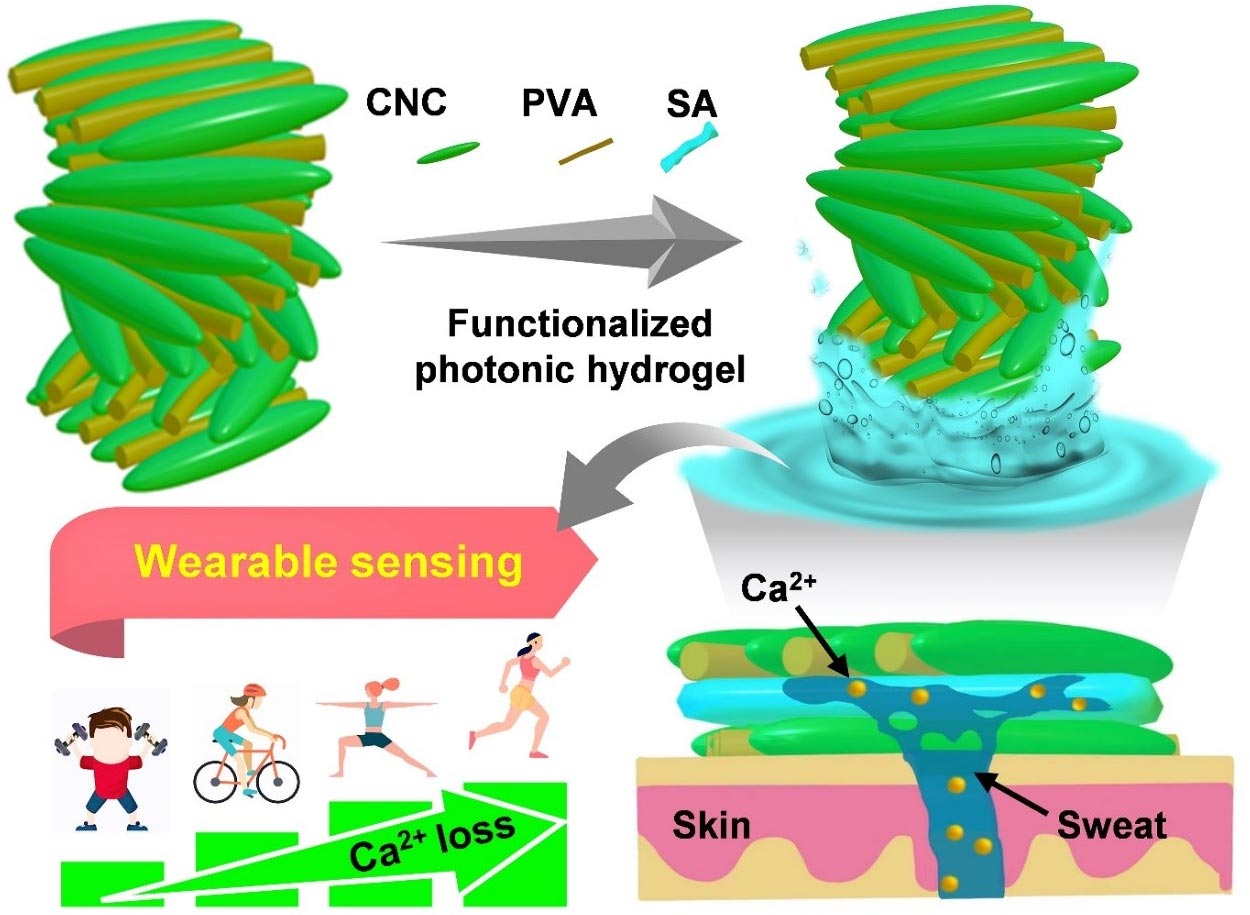Connect with us
Published
2 months agoon
By
admin
Researchers led by Prof. Guangyan Qing from the Dalian Institute of Chemical Physics have developed a sustainable, insoluble hydrogel made from cellulose nanocrystals (CNC), which is highly sensitive to calcium ions (Ca²⁺) in sweat. This innovation addresses a significant challenge in applying CNC materials in wet or liquid environments, which often leads to functional failures in biomedicine and wearable devices. Published in the journal Small, the study showcases an efficient method for creating CNC-based hydrogels through thermal dehydration and intermolecular hydrogen bond restructuring. This process allows the hydrogels to switch between dry and wet states, enhancing their utility. The resultant hydrogel exhibits freeze resistance (-20°C), strong adhesion, good biocompatibility, and heightened sensitivity to Ca²⁺. Prof. Qing envisions this advancement facilitating the development of cellulose sensors for monitoring various metabolites, including glucose and vitamins, while also laying the groundwork for digitally controlled hydrogel systems for applications in environmental monitoring and membrane separation. This work represents a significant step toward integrating sustainable materials into advanced sensing technologies, offering promising prospects for numerous applications in biomedicine and wearable electronics.













